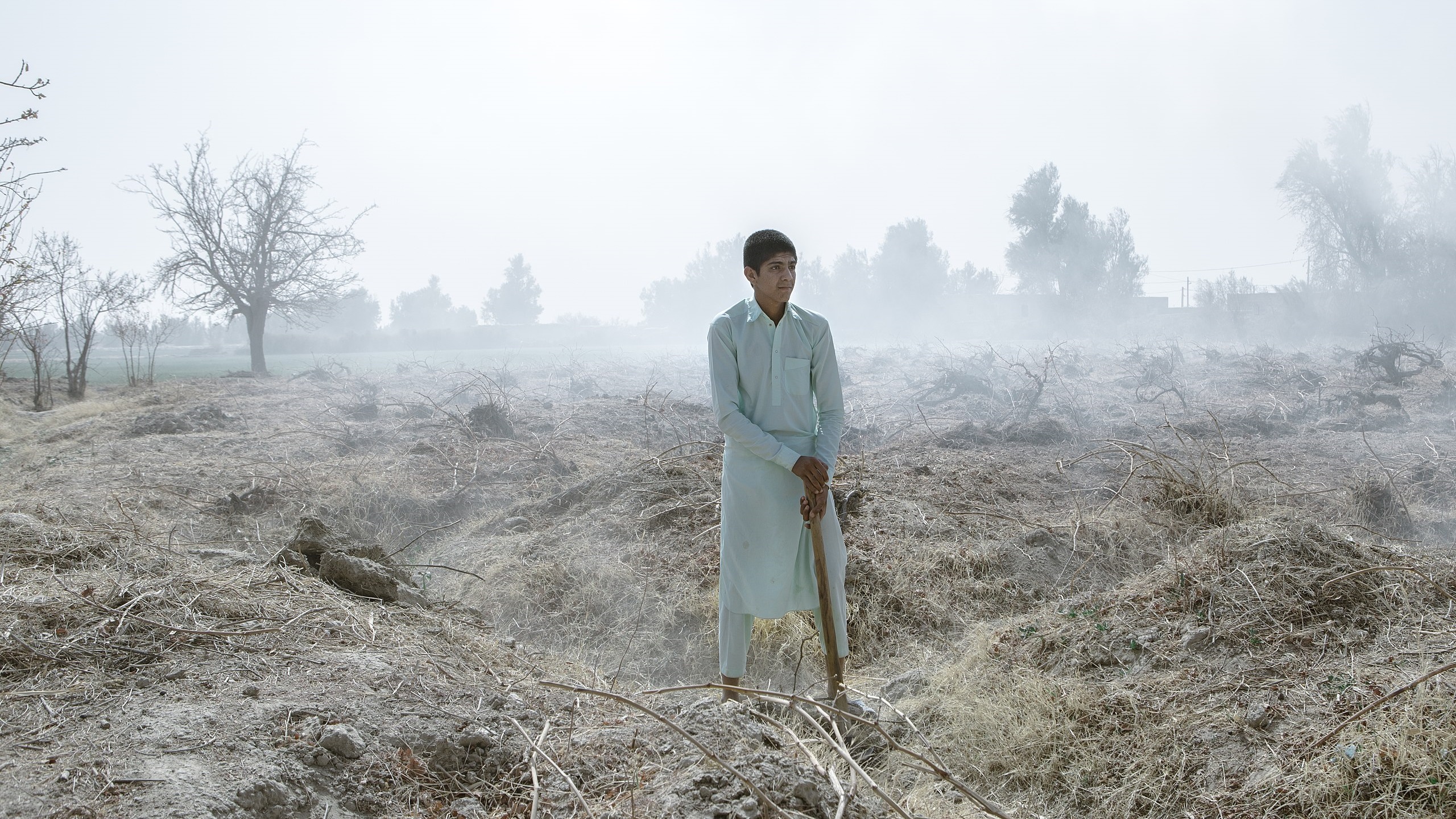Seeking To Shore Up Domestic Approval, Afghanistan, Iran Lean Into Water Conflict
As both countries grapple with crises of domestic legitimacy, tensions between Afghanistan and Iran have escalated over disputed water rights to the shared Helmand River, a dispute that some believe may be stoked to bolster local support
Tensions between Afghanistan and Iran over water rights have escalated over the past few days. In addition to both facing water scarcity, Afghanistan and Iran are also both facing crises of domestic legitimacy, leading some experts to believe that the countries will use a confrontation over water rights to bolster local support.
In 1973, Iran and Afghanistan signed a treaty codifying the two countries’ rights to the Helmand River, which flows from Afghanistan into Hamun Lake on the Afghan-Iranian border.
Tehran has recently accused the Taliban of violating the treaty by building dams that restrict the flow of water into Iran. Earlier this month, President Ebrahim Raisi publicly demanded that Afghanistan uphold the treaty. “I warn the rulers of Afghanistan to immediately give the people their water rights. Take my words seriously now or don’t complain later,” Raisi said.
I warn the rulers of Afghanistan to immediately give the people their water rights. Take my words seriously now or don’t complain later,
On Saturday, an exchange of fire took place at the border in response to the Taliban’s alleged violation, killing three and injuring several others. Both countries have denied firing the first shot. Later, senior Taliban commander Abdulhamid Khorasani released a video threatening to “conquer Iran soon if the Taliban’s leaders give the green light.”
Dr. Afshin Shahi, an associate professor of Middle East politics at Keele University in England, said that water is only one aspect of the dispute between the countries.
“Along with facing serious ecological crises, both Iran and Afghanistan are also grappling with political and economic instability,” he told The Media Line.
He explained that both countries are facing a “profound legitimacy crisis,” resulting in volatile domestic conditions.
Give the gift of hope
We practice what we preach:
accurate, fearless journalism. But we can't do it alone.
- On the ground in Gaza, Syria, Israel, Egypt, Pakistan, and more
- Our program trained more than 100 journalists
- Calling out fake news and reporting real facts
- On the ground in Gaza, Syria, Israel, Egypt, Pakistan, and more
- Our program trained more than 100 journalists
- Calling out fake news and reporting real facts
Join us.
Support The Media Line. Save democracy.
“While the Taliban’s clear violation of a historical water treaty dating back to 1973 exacerbates these issues, I think it’s also conceivable that the turmoil serves the interests of these states to some extent,” he said. He noted that the introduction of an external adversary might be a useful way for the governments to “divert the agitated populations’ focus away from internal troubles.”
Positioning themselves as the stewards of the invaluable resource of water would also serve to enhance both governments’ reputations, Shahi said.
“I think this is a clear manifestation of the ‘rally round the flag’ effect, which can benefit both states,” he said.
Mohammed Khan, a senior researcher at the Riyadh-based Rasanah think tank, described the Helmand River as a crucial resource for both countries. “It is important for farmers in Afghanistan and for farmers in Sistan-Baluchestan, an Iranian province,” he told The Media Line.
He predicted that the dispute over the river might lead to further conflict between the two countries. “Water is critical to both and has been a long-standing source of tension between the two and is likely to be a thorn in the future,” he said.
The country is on the verge of water bankruptcy, Therefore, all water sources are gold. Helmand is no exception.
Speaking to The Media Line on condition of anonymity, an Iranian economic consultant based in Tehran also noted the importance of water in the region. He attributed Iran’s long-standing water scarcity issues to global warming, a growing population, water resource mismanagement, and the government’s promotion of the agricultural sector.
“The country is on the verge of water bankruptcy,” he warned. “Therefore, all water sources are gold. Helmand is no exception.”
The source described the recent clashes over water rights as “a sudden and sad turn of events” given the warming relations between Iran and Afghanistan. “Iran even helped get rid of ISIS there,” the source said.
He said that Iran has been backed into a corner by Afghanistan’s treaty violation. Not responding would make Iran “look very weak and minor in the region and globally,” he said.
Afghanistan denies violating the treaty, Khan said. He explained that the Taliban has attributed the decreased water reaching Iran to natural circumstances such as diminished rainfall and hotter weather.
“Both parties need to damper fiery rhetoric and enter talks over water flow and ensure no violations take place of signed treaties,” he said. “In addition, the Afghan side needs to understand Iranian concerns over dam constructions that precede the Taliban’s recent tenure.”
If the tensions escalate, they may spread to the wider region and take on an element of Sunni-Shiite conflict, Khan said.



